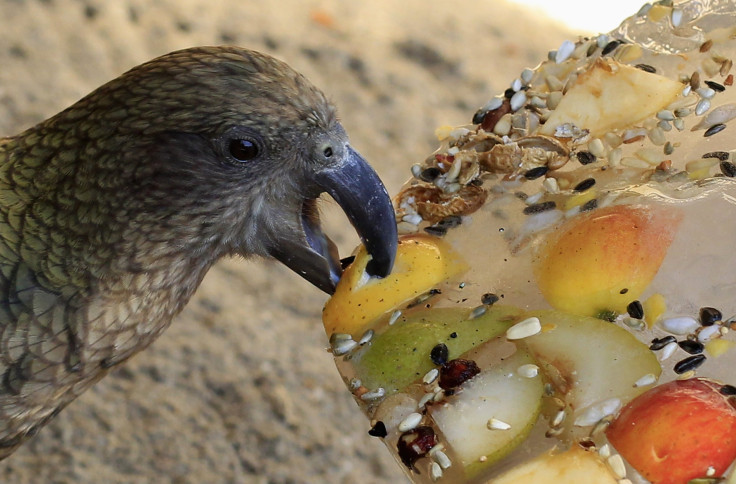Bird Research: Parrots Can Make Each Other Laugh, Scientists Find

Scientists have found the first example of contagious emotion in a non-mammal after observing a highly intelligent species of parrot that can crack up its friends.
New Zealand's kea parrots live in the mountains and are exceedingly playful. They often chase each other through the air and will even play catch with small objects. But it turns out this playful behavior is contagious — and can be spread through the kea equivalent of laughter.
Read: Giraffe Giving Birth On Live Cam Update: April ‘Piqued’ New York Zoo’s Interest A Few Times
Researchers from the Messerli Research Institute in Austria traveled to New Zealand and broadcast a variety of bird calls near wild kea. When kea of both sexes and all ages heard what the scientists believed were kea play calls, the birds exhibited longer, and more frequent, play behaviors, according to a study published Monday in Current Biology.
The parrots didn't just join other kea who were already playing when they heard the call, but also began to play by themselves wherever they were, Raoul Schwing, one of the leaders of the study, told National Geographic.
“In many instances, we saw that the kea were immediately animated to play, but not by joining ongoing play already happening,” Schwing said. “Instead, they spontaneously started to play with the bird next to them, or played solitarily in the air or with an object.”
This suggests the call isn't an invitation to play, but a contagious emotion that puts kea in a playful mood, much like human laughter, researchers suggested.
Scientists said that play behavior between adult members of the opposite sex is rare in animal species, and usually is part of a mating ritual. But with the kea, the activity appears to be just for fun.
While kea don't have the ability to mimic human speech like some species of parrots, they are some of the smartest birds on the planet. In one set of problem-solving challenges, the kea outperformed gibbons, apes that are part of the primate family.
© Copyright IBTimes 2024. All rights reserved.






















